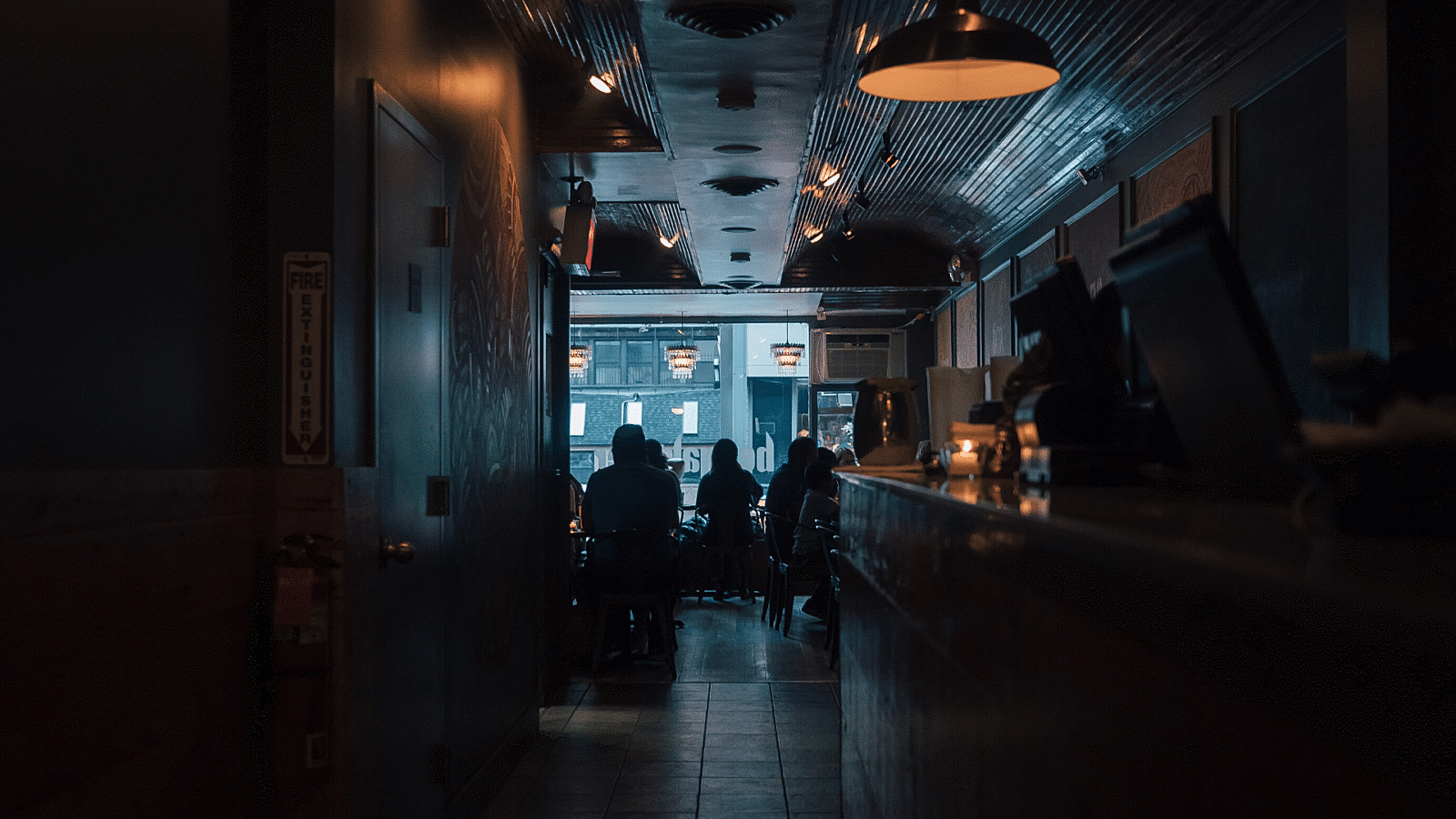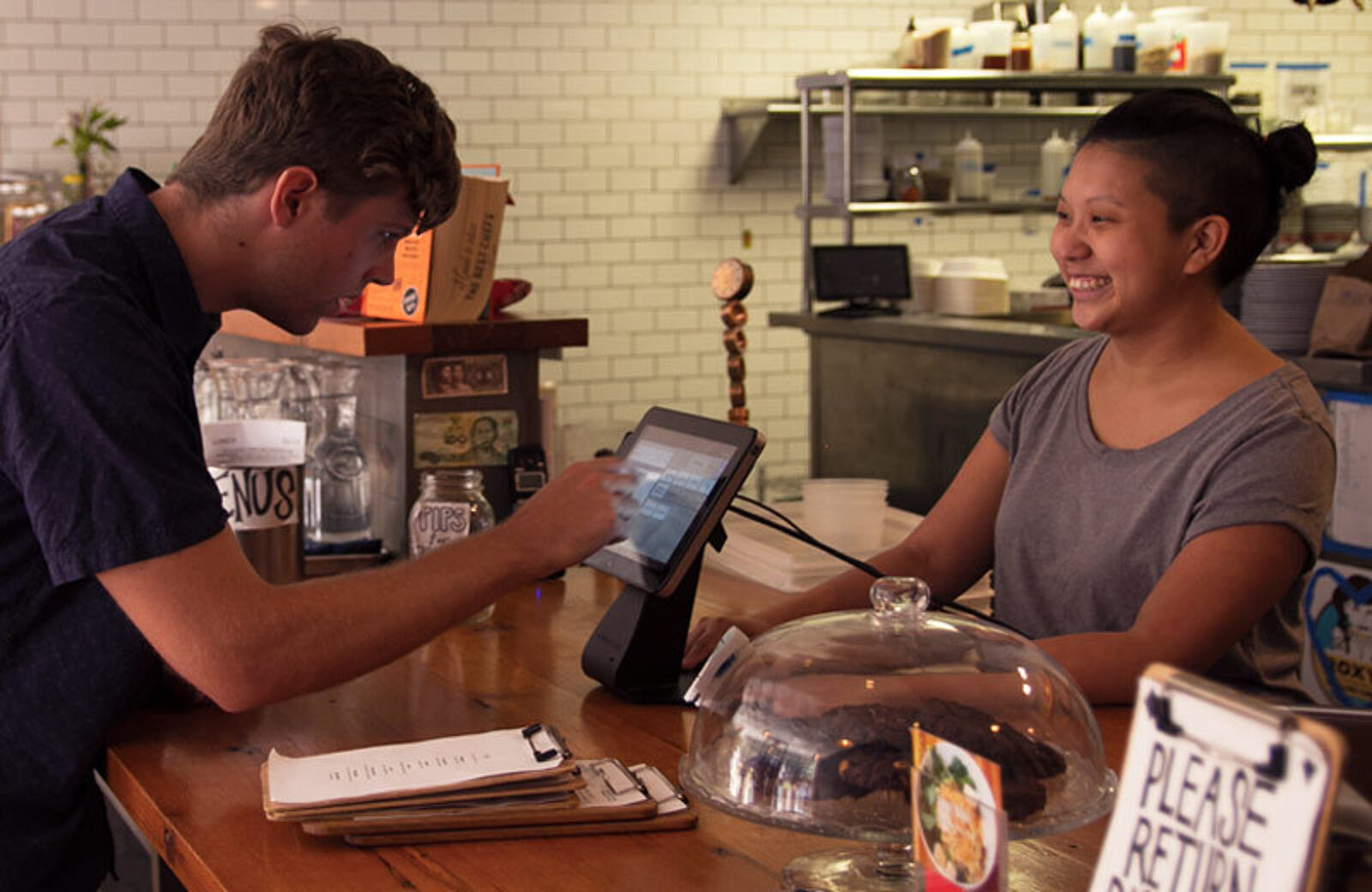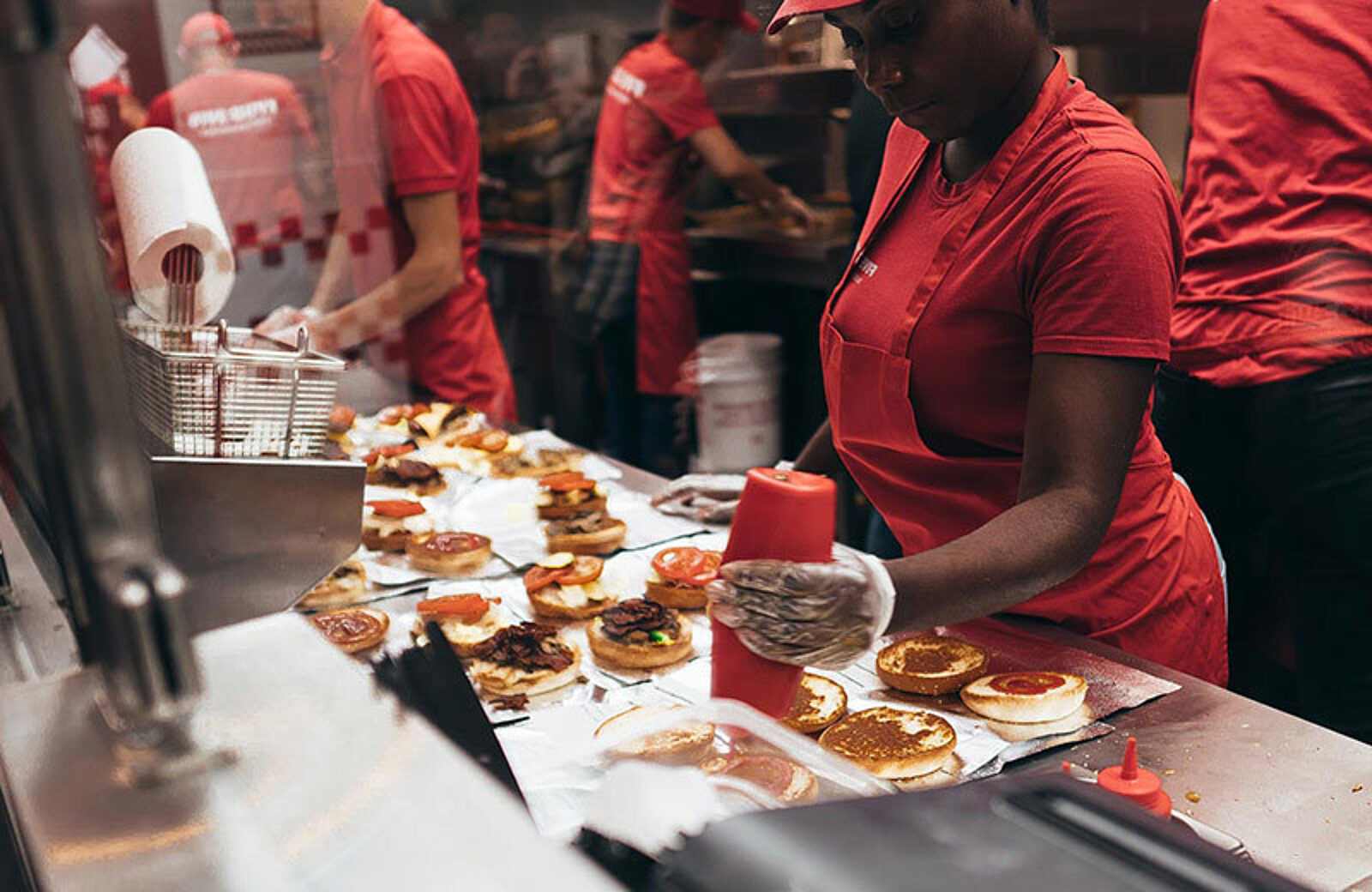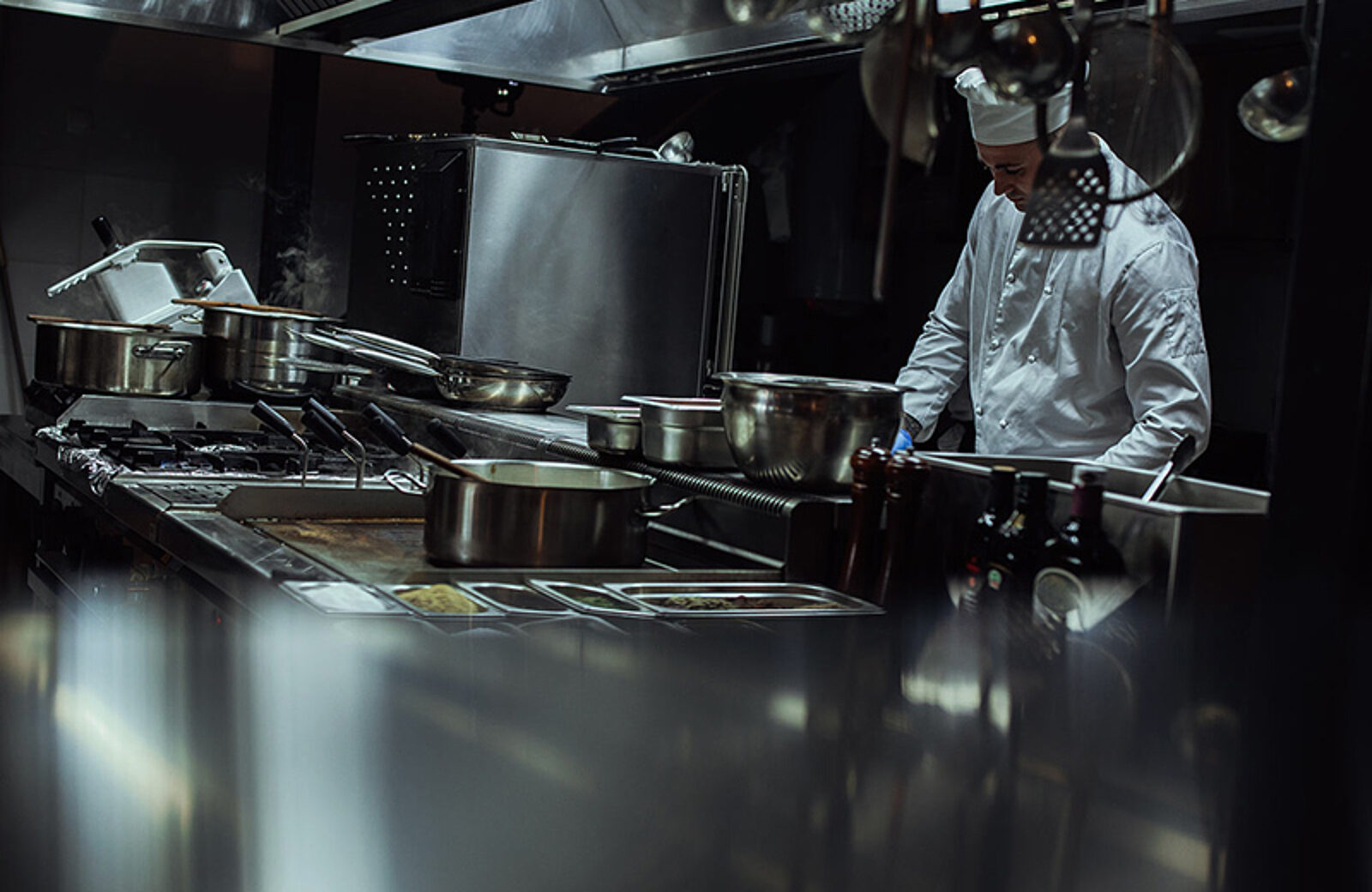
An Uphill Fight: The Realities of Being a Black Restaurateur
Despite having to cross one mountain to discover a series of other hills, Black restaurateurs aren’t giving up. Our collective palate should be eternally grateful for that.

Vaughn Stafford GrayAuthor
As I stood at my locker, putting on a heavily starched white chef’s jacket, elation washed over me. It was my first day at chef school. Despite being a “mature student” (before enrolling, I completed an English degree and worked in public relations and marketing), I could barely contain my adolescent level of excitement. I entered the packed auditorium for orientation and surveilled the sea of predominantly white faces. The eyes of the other Black students, two of them, met mine. We gave each other the nod.
Chef and author Michael Ruhlman’s first book, “The Making of a Chef: Mastering Heat at the Culinary Institute of America,” continues to be required reading for first-year culinary students at notable institutions. It was this, Anthony Bourdain’s (RIP) "Kitchen Confidential," and sheer gumption that allowed me to excel at chef school.
After graduation, though, I quickly adjusted my expectations of getting a position within the brigade of a fine dining kitchen. These positions were rare and given to those who were able to stage for months on end. I couldn’t afford to do that, so I went on to become a personal chef, thinking I’d raise enough money to open a small bistro. After a year and a half, I left the restaurant industry and ran into the arms of a regular check offered by a corporate job. I am not alone in this experience.
A Race Against Time
Twelve years ago, Michael Ruhlman wrote “Black Chefs' Struggle for the Top,” published in The New York Times, in which he explains how fine dining has an astonishing lack of Black chefs. “... with the restaurant industry booming and chefs becoming celebrities and wealthy entrepreneurs, few Blacks are sharing in that success,” wrote Ruhlman.
Five years after that article, FSR Magazine published its "Mixed Report Card for Blacks in Fine Dining," and it echoed Ruhlman’s story. “But behind the scenes, there’s a more sober picture that is not so encouraging: Black professionals, be they back-of-the-house, head chefs, or sous chefs, or front-of-the-house servers, maître d’s or sommeliers, are still largely absent from mid to upscale restaurants.”
Today, little has changed. Why is that? To borrow from the Netflix series "#blackAF": “because of slavery.”
Congress passed the 13th Amendment abolishing slavery in the United States in 1865. At that time, the U.S. population was 14% Black, and this segment owned less than 1% of the country’s wealth. According to the most recent census, Black Americans make up almost 13% of the current population today, but how much of the nation’s wealth do they now own? Less than 2%. In 155 years, Black people in America have not enjoyed economic progress due to the presence of structural racism.
The median net worth of non-Hispanic white households is $171,000, while Black families' median net worth is $17,600. The Economic Policy Institute has pointed out that between 1983 and 2013, white households enjoyed a 14% increase in wealth while Black families saw their wealth decline by 75%. It was around 1970 that the super rich in the U.S. began getting super, super rich. Since then, the 1%, which is overwhelmingly white, has had its wealth more than double.
Discrimination Is a Habit That’s Hard to Break
University of California, Irvine law professor Mehrsa Baradaran, who specializes in banking law, wrote "The Color of Money: Black Banks and the Racial Wealth Gap." Not only does it reinforce the detrimental effects of racism on Black property and business ownership in the U.S., but it is also a sobering interrogation of the notion that hard work, bootstrapping, and dedication are the key ingredients for success.
Today, 60% of Black Americans are either “unbanked or underbanked.” Only 20% of the white population experiences this underfunding, proving Baradaran’s argument that the “American economic system, since its inception, has worked to the benefit of persons of European descent and to the simultaneous detriment of persons of African descent.” Let that sit with you for a minute, or a few days, and you’ll realize that for Black people, the American dream is an uphill fight.
Here’s another not-so-fun fact: 25% of Black families have zero or negative net worth, while only 10% of white households encounter such poverty. The National Community Reinvestment Coalition (NCRC) works to end “discrimination in lending, housing, and business.” Between 2008 and 2016, the NCRC conducted a study and revealed its findings in Disinvestment, Discouragement, and Inequity In Small Business Lending. Buckle up. The study “revealed a troubling pattern of disinvestment, discouragement, and inequitable treatment for Black and Hispanic-owned businesses.” But wait, there’s more. The study conducted a test by sending groups of white, Latinx, and Black secret shoppers into banks. “Bank personnel introduced themselves to white testers 18% more frequently than they did to Black testers. White testers received friendlier service overall.” This discrimination pervades in the restaurant industry, too.
The Lid Has Blown Off the Pressure Cooker
In the wake of COVID-19, which disproportionately affected Black communities, citizens across the U.S. risked exposure to take to the streets to protest the killing of George Floyd by Minneapolis police officers on May 25, 2020. The daily protests and the amplification of Black voices in media worked to blow the cover off the pressure cooker of racial injustice that’s been hissing on the back burner for decades.
Where COVID-19 has had a tragic effect on Black businesses, the rallies of racial injustice were the bricklayers building them back up. Black-owned companies have been put in the spotlight. They have seen a surge in interest since the country has taken to the streets. Awareness, word-of-mouth, and apps that make it easier to find Black-owned businesses across the U.S. have spread. Even problematic industry behemoths like UberEats have waived delivery fees on orders from Black-owned restaurants in the U.S. and Canada. We can only hope this energy is kept up.
The underfunding of individual Black business owners leads to less cash flow in Black business communities. And while now, in the wake of George Floyd’s killing and the rise in awareness of the Black Lives Matter movement, we see new interest from white consumers in supporting Black businesses, historically, Black business owners have had to support each other.
“Owning a business is tough. Being a Black-owned business has another level of armor on top of that, that you’ve got to get through to be successful,” said James Beard nominee Greg Collier in an interview with the Charlotte Business Journal. Collier’s wife worries about him when he heads to their Charlotte, NC restaurant Uptown Yolk at 7th Street Public Market, because despite wealth and class, Black bodies are not valued in this country. Being a well-respected and popular business owner will not protect Collier against the dangers of racism. His wife’s fear is not unfounded. On June 1, 2020, Louisville restaurant owner David McAtee, who regularly fed law enforcement for free, was killed when police and the Kentucky National Guard used bullets to disperse a large crowd.
The Mental Burden of Racism
Structural and explicit racism not only reduces access to funding, new opportunities, and physical safety for Black business owners — it takes a serious toll on mental health.
To have their worthiness considered, Black people have to swallow the bitter pills of code-switching, acceptable hairstyles, and respectability politics. Add the daily emotional dodging of the wrecking ball of racism to the approximately 10 generations of inherited grief, and you won’t be surprised to hear that in many Black communities, mental health goes untreated and is deemed a part of one’s lot in life. This reticence in treating mental health is also based on experience. Historically, Black people who display mental health problems end up in the forensic unit, not the psychiatric unit. But Black Americans are tired of wading in the water. It’s time they get to rest in the sunshine on the banks.
Many Black colleagues of mine mentioned that their therapists have had to pivot their courses of therapy but haven’t had to do the same for most of their white patients. Tihesha Lemon-Deacon is a licensed therapist based in Savannah, GA. Since COVID-19, she's had an increase in clientele. More recently, she's been dealing with clients who “are feeling the pressure of their Blackness since all of the public protesting/awareness has begun.” According to Demos, a public policy think tank: “This confluence of crises is compounded by the tragic failures of our political institutions, which are incapable of assuring the basic safety and security of Black people in particular.”
“The issues facing Black entrepreneurs are very real,” said Lemon-Deacon. Then there comes the burden of intersectionality, “Being an entrepreneur, being a woman, being queer... you are combining the effects of your Blackness, and this creates a multitude of individuals that are walking around not sure of who they are.”
Hope Has Been the Fuel of Generations
A 2017 Federal Reserve study revealed that, “although many minority small businesses were profitable and optimistic, a significant majority faced financial challenges, experienced funding gaps and relied on personal finances.” It also noted, “Black-owned firm application rates for new funding are 10 percentage points higher than white-owned firms, but their approval rates are 19 percentage points lower.”
In an interview with U.S. hospitality trade publication QSR, founder of the wildly popular Atlanta restaurant Slutty Vegan, Pinky Cole, shared it was imperative for her to bank with a Black bank. “One thing that I've done as a Black-owned business is I went ahead and I opened up a Black bank account. I moved my money over to a Black bank account because I wanted to be able to support another Black-owned company with my money so that they can pour those dollars into the Black communities.”
When so many Black communities experience food apartheid, and their businesses are less likely to have access to major commercial lenders, reinvestment into Black communities in key.
And with all these injustices and roadblocks, what would make Black restaurateurs even try? Usually, hope. In the words of former President Barack Obama, “Hope is not blind optimism. It's not ignoring the enormity of the task ahead or the roadblocks that stand in our path. It's not sitting on the sidelines or shirking from a fight. Hope is that thing inside us that insists, despite all evidence to the contrary, that something better awaits us if we have the courage to reach for it, and to work for it, and to fight for it.”
The Road Ahead
Michelin has been awarding its coveted stars to restaurants since 1926. Currently, there are 3,150 Michelin star chefs across the world. There, among the pantheon of the world’s best, is a single Black person — and the first Black woman — Mariya Russell. Chef Russell is chef de cuisine of Chicago omakase restaurant Kikkō and was awarded a star in September 2019. The first — and only other — Black chef to receive a Michelin star was French chef Louis-Philippe Vigilant in 2014, who was then the chef of Loiseau des Ducs restaurant in Dijon, France. (Michelin stars don’t travel with chefs once they decide to leave an awarded establishment. Stars are reevaluated annually and can be taken away.)
At the beginning of 2020, Chef Mariya Russell told Chicago magazine, “The restaurant industry isn’t an easy place to work in general: Think of the long, late hours and sky-high customer expectations of a fine dining restaurant. Add to that being a Black woman in a white, male-dominated realm.” If hopelessness were a part of Russell’s DNA, then the sweet taste of success would have eluded her. But she understands — as all Black people do — that hyper-vigilance has to be kept within reach, like a pair of plating tweezers.
More recently, we’ve seen increasing calls to action on social media to support Black restaurants. It’s my hope that this is not in the slightest performative. Many people now understand that racism is a common dish served throughout the culinary world. However, despite having to cross one mountain to discover a series of other hills, Black restaurateurs aren’t giving up. Our collective palate should be eternally grateful for that.
Is this article helpful?
DISCLAIMER: This information is provided for general informational purposes only, and publication does not constitute an endorsement. Toast does not warrant the accuracy or completeness of any information, text, graphics, links, or other items contained within this content. Toast does not guarantee you will achieve any specific results if you follow any advice herein. It may be advisable for you to consult with a professional such as a lawyer, accountant, or business advisor for advice specific to your situation.
Read More
Subscribe to On the Line
Sign up to get industry intel, advice, tools, and honest takes from real people tackling their restaurants’ greatest challenges.


